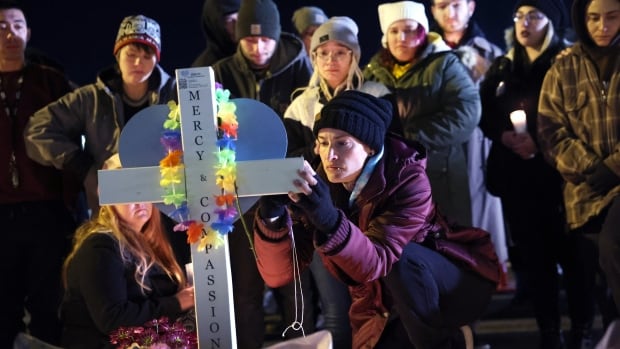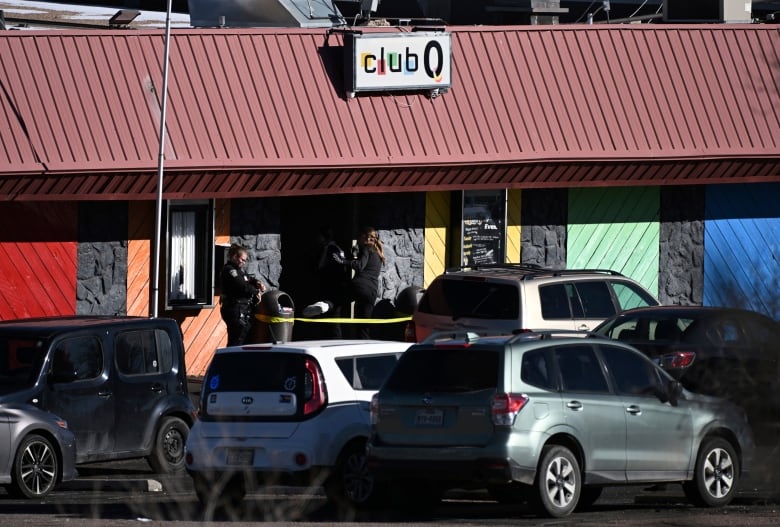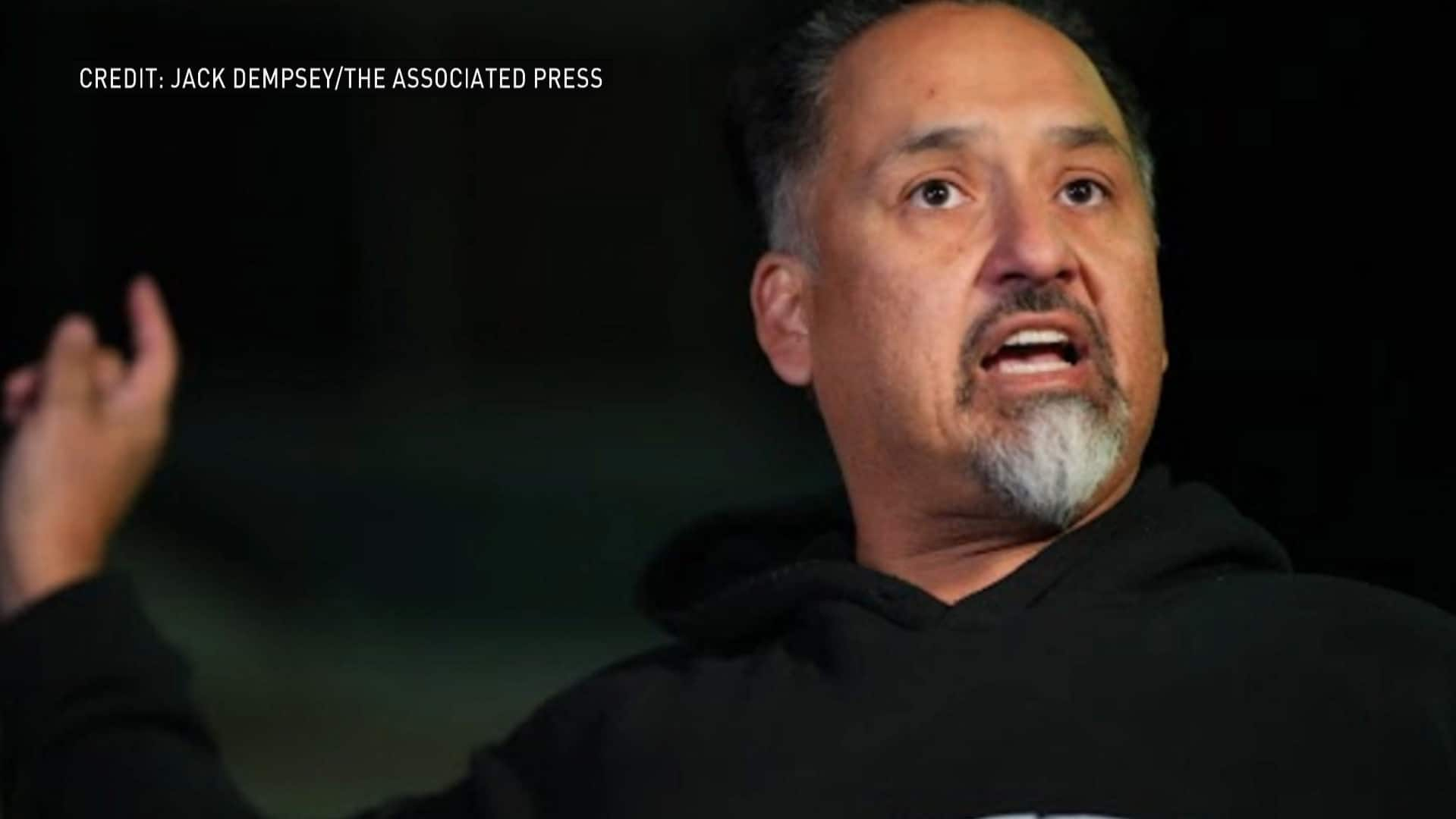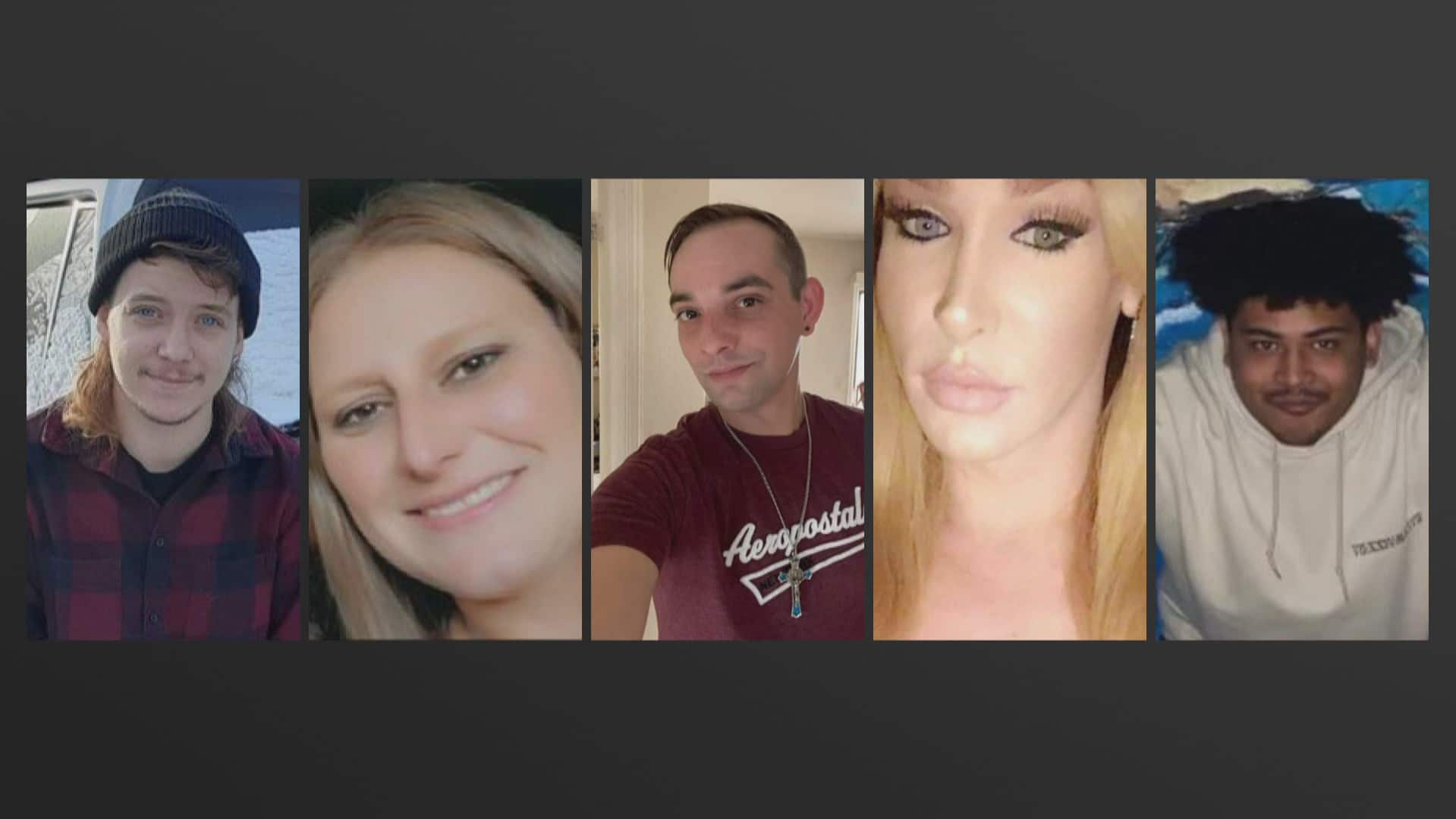
The Current19:47The importance of queer spaces, in the wake of a fatal shooting at a Colorado gay bar
The fatal gun attack on a Colorado gay nightclub is a violent extension of long-standing rhetoric that LGBTQ people should “keep it behind closed doors,” says activist Dan Savage.
“It makes you feel not [just] unsafe in a gay bar, but unsafe in the world … and you’re reminded that there are people out there who don’t want you to feel like you have a place and don’t want you to feel safe anywhere,” said Savage, an author, LGBTQ advocate and sex advice columnist.
“What an attack on a gay bar says is, ‘You know what, it’s not even good enough when it’s behind closed doors. We don’t want you to exist anywhere,'” he told The Current’s Matt Galloway.
Five people were killed and at least 17 injured on Saturday when a gunman opened fire with a semiautomatic rifle in Club Q, the only gay nightclub in Colorado Springs, Colo. The 22-year-old alleged gunman was subdued by patrons at the bar before police arrived. He now faces multiple murder and hate crime charges.
WATCH | Man describes tackling Colorado Springs attacker
U.S. army veteran Rich Fierro describes the moment he helped stop the alleged killer of five people in a Colorado Springs, Colo., LGBTQ club.
The shooting has left Colorado’s LGBTQ community devastated and angry, particularly in light of the 2016 attack that killed 49 people at the Pulse nightclub in Orlando, Fla., said Garrett Royer, deputy director of LGBTQ rights organization One Colorado.
“Just reconciling that this pattern keeps continuing, it’s very difficult and I think it makes a lot of folks extremely hurt, very upset that our community has been targeted in this way,” he said.
Royer said he’s seen a rise in anti-LGBTQ rhetoric, fuelled by right-wing politicians and commentators fomenting public anger around issues including transgender health care, and drag queens reading to children at public libraries.
“You see folks like Representative Lauren Boebert … she’s made national headlines for talking about how drag queens are child abusers,” he said.
.<a href=”https://twitter.com/laurenboebert?ref_src=twsrc%5Etfw”>@laurenboebert</a> you have played a major role in elevating anti-LGBT+ hate rhetoric and anti-trans lies while spending your time in Congress blocking even the most common sense gun safety laws.<br><br>You don’t get to “thoughts and prayers” your way out of this. Look inward and change. <a href=”https://t.co/mxt6wFMVEv”>https://t.co/mxt6wFMVEv</a>
—@AOC
Events and organizations in Canada have faced similar threats and harassment.
Greggor Mattson, who has studied the importance of dedicated spaces for queer communities, says the “backlash” against LGBTQ visibility is because “the political right has been losing the battle to keep us in the closet.”
“They know they’re losing, and so they’re stirring up hateful rhetoric,” said Mattson, a professor of sociology at Oberlin College and Conservatory in Ohio.
“And hateful speech leads to hateful actions.”
Gay bars as ‘not-quite-for-profits’
Mattson is the author of a forthcoming book, Who Needs Gay Bars?, that looks at the role these venues play for queer communities.
He said bars have often functioned like community centres, as “the only place where we can reliably find each other in public,” where activism and charity can be supported and organized.
“I call them not-quite-for-profits. I mean, they got to pay their taxes, they got to keep their lights on, but they also got to keep the community afloat,” he said.
These spaces are particularly important for those who grow up isolated from other queer people.
“Nightlife has been one of the places where we can find each other, grow into the identities we were born to have,” he said.

LISTEN | James Davis reads Club Q, a 2020 poem about the Colorado Springs venue
The Current2:05Club Q, a poem by James Davis
While Mattson said the internet has offered new avenues to find connection, that’s also led to falling revenues and the closure of many venues, exacerbated by the pandemic.
“When those spaces wink out of existence, sometimes we also lose our pride celebrations, our queer film festivals, our drag queen story hours, because often the activism of the community is catalyzed in these spaces,” he said.
Dating apps have also decentred gays bars to an extent, but Mattson said these apps “often permit only 1-to-1 communication — and you can’t build a community 1-to-1.”
“[You need the chance] to bump into someone and to have that serendipitous interaction — that maybe is meeting a queer elder or that maybe is meeting someone who introduces you to a whole world that you didn’t know existed,” he said.
WATCH | Vigils continue as 5 killed in Colorado gay club identified
The five people killed in Saturday’s shooting rampage in a Colorado Springs nightclub have been identified. The 22-year-old suspect is facing five murder charges and five charges of committing a bias-motivated crime causing bodily injury.
Savage said he wants to see action on gun control, and a change of heart from those pumping out anti-LGBTQ rhetoric — but he doesn’t expect that to happen.
Instead, he thinks “queer people are going to do what we do, which is come out and fight and claim space when people tried to take our safe spaces away from us.”
He pointed to the 1969 Stonewall riots in New York — a pivotal movement in the LGBTQ civil rights movement — that started after police raided a gay bar.
“People poured out of that bar and into the streets and fought to make themselves feel safe, not just in a gay bar behind closed doors, but everywhere,” he said.
“That fight is ongoing and we’re not going to walk away from it.”

